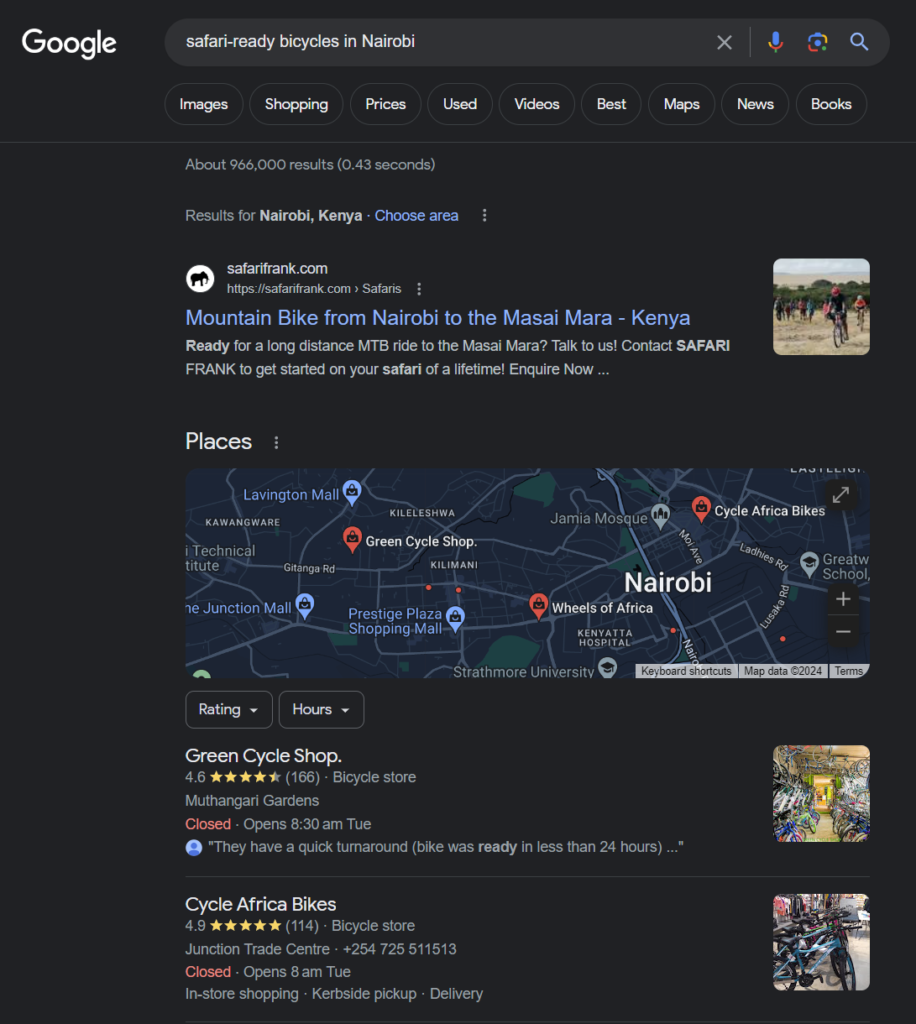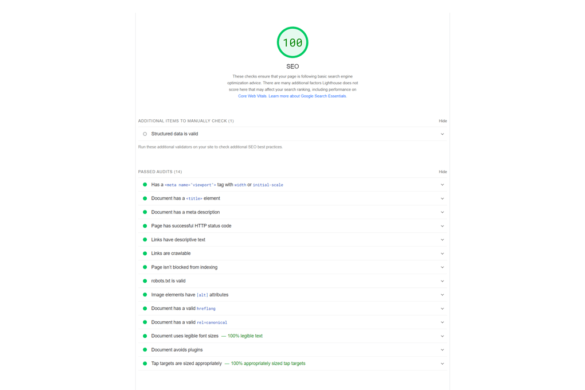Table of Contents
The foundation of search engine optimization (SEO), which is an intimidating force in boosting conversions and revenue generation, is effective keyword research. No matter how knowledgeable a company is about digital marketing, they all need to become experts at keyword research.
This guide will teach you how to identify the ideal keywords for SEO, allowing your business to get the most out of SEO efforts and generate a profit. The following subjects will be discussed:
- What is keyword research?
- Why is keyword research important?
- Keyword research elements
- How to find keywords for SEO
- How to incorporate SEO keywords
Keep reading to learn how to do SEO keyword research! If you’re looking for professional help with SEO, contact us online or call (+255) 783-957-836 to learn more about our custom SEO plans for small-to-midsized businesses (SMBs)!
What is keyword research?
Keyword research is the process of finding, analyzing, and choosing keywords, which are the language cues people use to get results from a large number of search engine domains, in order to strengthen SEO strategies. SEO carefully uses these keywords to direct search engines in where to place pages in search results, while also helping users understand the context of a particular page.
As an example, imagine searching for “safari-ready bicycles in Nairobi”—a unique term that expresses your exact search intent in the Kenyan setting. The following outcomes capture what relevance is all about:

This keyword serves as an informant to Google, articulating your information needs during the search. Engaging in comprehensive keyword research for SEO equips you with the power to communicate to both Google and users the essence of your site and its thematic substance.
Why is keyword research important?
Finding keywords is incredibly important for your SEO efforts. By focusing on users’ searches early on and creating content that meets their needs, you create the conditions for success. Researching SEO keywords is important for several stakeholders, including:
- Search engines: To determine the relevancy of websites in search results, Google and its competitors use keywords. A blog post with a title tag that includes the term “best running shoes” and a carefully curated list of the best running shoes, for example, tells search engines that it should appear in results for queries related to that term.
- People: Searchers use keywords to comb through the enormous amount of content available online, selecting which results from search results to click on. Instead of choosing a simple product page, a user looking for a list of the top running shoes is more likely to choose an extensive blog post that highlights the best shoes.
- Businesses: By carefully focusing on high-value keywords, businesses that use keyword research are able to achieve a higher return on investment (ROI) from their SEO efforts. For best results, a company conducting SEO keyword research might focus on long-tail, low-competition keywords.
You can make data-driven, well-informed decisions about your SEO strategy if you can master the art of keyword research. You get insight into the terms that will direct users to your business, so you don’t have to rely on conjecture about what searches your target market will favor.
Keyword research elements
Relevance
Fundamentally, relevance is the degree to which your selected keywords are consistent with the user’s intent, or understanding the reason for their search. Your content’s and your keywords’ success depends on how well they can speak to the user’s intent.
Giving users search results that are exactly what they need is Google’s goal. The algorithm does this by evaluating the relevancy of your keywords, figuring out whether your site is a suitable match, and then displaying it in the search results.
Authority
Sources that Google considers authoritative are given preference and are ranked higher. Finding websites with reputable domain names and an established online presence is essential to providing users with the best possible results.
The process of building authority involves creating informative, high-quality content that benefits users and obtains backlinks. It’s critical to understand how expertise, authority, and trustworthiness (EAT) affect your rankings.
While facing off against industry heavyweights like the New York Times or Mayo Clinic can be difficult, doing so can also motivate you to build your authority.
Volume
The monthly search volume (MSV) measure of keyword volume calculates the number of times a keyword is searched in a given month. While ranking for keywords is important, your reach may be constrained if they have a low MSV.
Finding keywords that receive a lot of searches is essential to efficiently answer user inquiries.
Cost-per-Click (CPC)
Analyzing this keyword’s cost-per-click reveals how competitive the advertising market is. When a high search volume and a lower CPC are combined, it suggests a profitable keyword with lots of user interest and little advertising competition.

In summary, choosing keywords such as “organic skincare products” requires a careful balancing act between volume, CPC, authority, and relevancy. Your SEO strategy can be optimized by creating content that is relevant to the intent of the user, building authority, and focusing on keywords that have a high search volume and affordable CPC.
How to find keywords for SEO
Starting the process of researching SEO keywords reveals a significant area. It begs to be asked again: How does one begin this quest? Look, here are four unique steps that solve the puzzle and lead you through the maze of strategic keyword discovery:
- List possible keywords.
- Look up rival keyword targeting
- Make a list of long-tail keywords.
List possible keywords.
Before starting the process of identifying keywords, the first step is to organize a brainstorming session to generate a list of possible keywords. These keywords are extensive, allowing you to include anything relevant to your business, goods, or services.
Imagine a downtown Seattle artisanal coffee haven. Imagine the keyword strategy it could use: it wouldn’t have to stick to the general term “coffee shop” but could expand into more specialized areas by utilizing terms like “single-origin beans,” “pour-over mastery,” or any other nuances that are part of the vocabulary of coffee enthusiasts. The loom is longer; consider the careful application of location-based keywords. These aren’t just words; they’re carefully crafted expressions that define your location, from the larger picture of your state to the tiny town of your neighborhood.
Regarding technology, let’s take the example of a software development company that wants to increase its online presence. View the painstaking list of keywords, which isn’t limited to the general “software development” but also goes into more detail with phrases like “custom software solutions,” “agile methodologies,” and any other aspects that characterize the software environment. As the story progresses, consider the strategic use of location-based keywords to clarify the geographic footprint from the vastness of the nation to the closeness of the neighborhood.
Look up rival keyword targeting
Take a look around the internet and investigate the nuances of the virtual domains of your competitors. Discover the mysterious terms that dance across their pages, describing goods and services that sound just like yours. This analytical journey is more than just a simple search; it’s an intellectual exploration, a voyage of novel thought and discovery that will reveal the unexplored regions of your keyword research.
Observe which websites frequently appear high on search engine results pages (SERPs) as you search for keywords. You can find the competing websites to search for in this step. If you are already familiar with your competitors, you can check how they rank by running their website through Ahrefs or a comparable tool.
Make a list of long-tail keywords.
As a result, I beg you to add a healthy dose of confusion and brevity to the content we create going forward. At the same time, we want to reduce the degree of predictability. Furthermore, follow the English language strictly. Let’s now rewrite the following passage:
After you have completed your initial list, the next step is to expand it into a longer list of long-tail keywords. Short-tail keywords summarize broad concepts and usually consist of one or two words. Long-tail keywords, on the other hand, are three to five words long and go into greater detail with a deeper context.
After that, the approach switches to finding long-tail, extremely targeted keywords that provide information about the user’s intent. To narrow the search intent, try narrowing your focus to “custom software solutions in Nairobi” rather than settling for the general Keyword “custom software solutions.”
How to incorporate keywords
Imagine this: as you add keywords to your content, its mystery begins to reveal itself. Four complex steps need to be performed to achieve SEO mastery:
- Include keywords all over your website.
- Put your keywords in a hierarchy.
- Continue your keyword research at all times.
Below, let’s examine each one in more detail!
1. Include keywords all over your website.
Including keywords on your website is an essential step in your research process. It is useless to have excellent keywords if you cannot figure out how to use them properly.
Use these techniques to maximize the potential of your keywords and improve their visibility for both Google and searchers:
- Focus on one main target keyword and three to five supporting keywords that support the theme of your page.
- Include the target keyword in the meta description, title tag, and page title.
- Include the primary keyword in the first one hundred words of your page.
- Avoid embedding an outbound link with the anchor text of your keyword.
- Make an effort to incorporate every keyword naturally at least twice.
Use our keyword density tool to quickly identify where your keywords are located and whether any changes need to be made.
2. Put your keywords in a hierarchy.
In order to minimize predictability, a balance between significant burstiness and perplexity is sought for the upcoming content creation task. There must be a strict adherence to English language usage. Let’s now rewrite the following passage:
The next step is to plan how to incorporate your keyword list into your website in an easy-to-use manner. Making links between keywords and showing how they relate to one another can greatly improve Google and user interest in your website.
Include those keywords carefully in title tags, header tags, meta descriptions, and other important HTML elements if they are already linked to pages that already exist. Make sure the body copy on each page incorporates these keywords seamlessly.
As you explore keywords, you might come across terms that don’t have any dedicated content. Rather than tackily attaching them to irrelevant pages, take advantage of this chance to grow your website’s content library by producing more audience-focused pages.
Subsequently, foster internal links to elucidate the interconnectedness of your keywords. For example, if your main page is about bike parts, you might want to link to other pages that discuss bike racks, wheels, chains, and other related topics.
Take care to avoid keyword stuffing, which is the excessive addition of keywords in places where they are not required or relevant. Every piece of content on your website should be created with your users in mind, to educate prospective buyers while maintaining coherence and relevance.
3. Continue your keyword research at all times.
In the labyrinth of website optimization, persist in the meticulous exploration of keywords, allowing your curiosity to roam freely. Engage in the art of keyword research with unwavering dedication, unearthing a trove of terms that resonate profoundly with your audience. This perpetual pursuit not only fortifies your connection with customers but also ensures the adaptability of your content to the dynamic shifts in search behavior and emerging trends.
Consider, for instance, the keyword “sustainable living tips for urban dwellers.” While currently holding sway in eco-conscious circles, the ever-evolving landscape of sustainability may birth new paradigms and lifestyles. Visualize a future where urban dwellers seek not just tips but immersive experiences, reshaping the keyword landscape and propelling your content into uncharted territories of relevance.







Add your first comment to this post